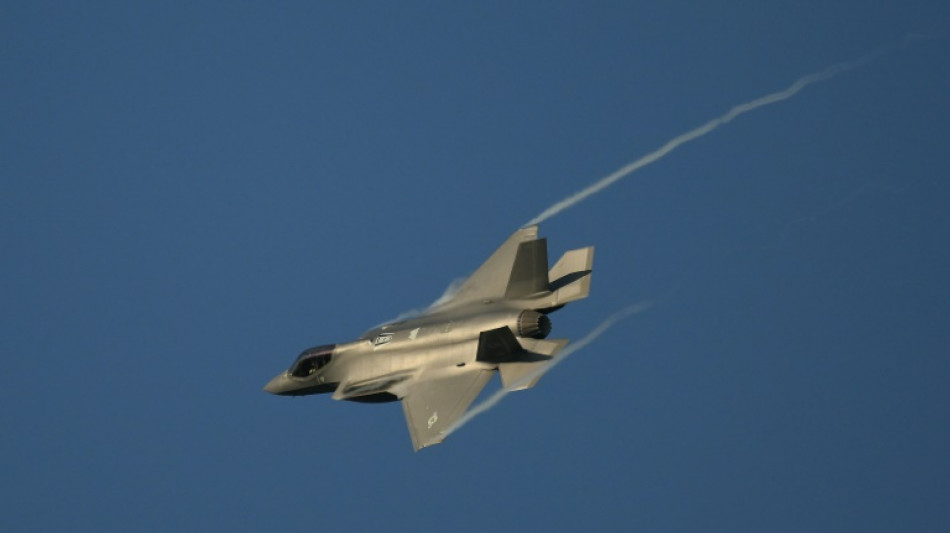
-
 Spaun grabs US Open lead with McIlroy, Woodland in the hunt
Spaun grabs US Open lead with McIlroy, Woodland in the hunt
-
Dollar dives on Trump's new trade threat
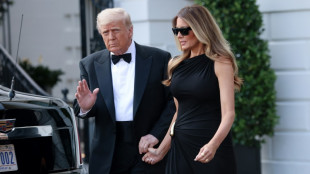
-
 Cunha completes 'dream' Manchester United move
Cunha completes 'dream' Manchester United move
-
Australia's Cummins rips through South Africa batting in WTC final

-
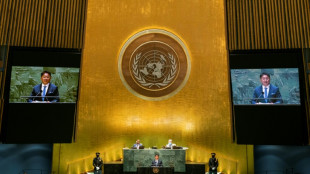 UN to vote on calling for Gaza ceasefire
UN to vote on calling for Gaza ceasefire
-
Ukraine boycott world judo champs as Belarusians compete under flag

-
 Trump hails troop deployment as California readies legal battle
Trump hails troop deployment as California readies legal battle
-
London-bound plane with 242 on board crashes into doctors' housing in India

-
 India plane crash: What we know so far
India plane crash: What we know so far
-
More arrests after third night of unrest in N. Ireland town

-
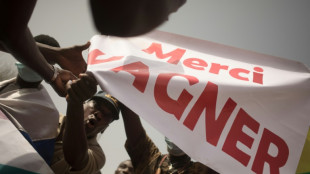 Hundreds of civilians were tortured by Wagner mercenaries in Mali: report
Hundreds of civilians were tortured by Wagner mercenaries in Mali: report
-
Spurs set to name Brentford boss Frank as new head coach: reports

-
 Germany's BioNTech to buy CureVac to boost cancer research
Germany's BioNTech to buy CureVac to boost cancer research
-
Archaeologists find France's deepest shipwreck
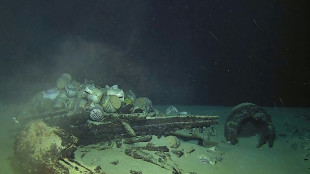
-
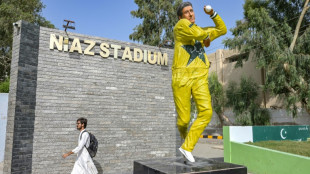 Pakistan's Akram praises his statue amid social media flak
Pakistan's Akram praises his statue amid social media flak
-
In Nigeria, the juntas are history, but street names live forever

-
 Real Madrid 'only' team I'd have left Liverpool for: Alexander-Arnold
Real Madrid 'only' team I'd have left Liverpool for: Alexander-Arnold
-
787 Dreamliner is Boeing's flagship long-distance plane
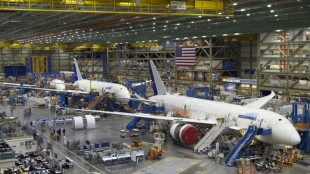
-
 All Black Fainga'anuku eyeing Top 14 semis before New Zealand return
All Black Fainga'anuku eyeing Top 14 semis before New Zealand return
-
Wimbledon prize pot increases as players push for greater profit share

-
 McIlroy pars, DeChambeau bogeys and Aberg leads as US Open begins
McIlroy pars, DeChambeau bogeys and Aberg leads as US Open begins
-
McKeown untouchable at Australian trials as Chalmers, Pallister shine

-
 India and its vast booming aviation sector
India and its vast booming aviation sector
-
Bavuma, Bedingham lead South Africa rally in WTC final against Australia

-
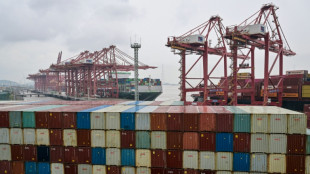 Stocks, dollar retreat on new Trump trade threat
Stocks, dollar retreat on new Trump trade threat
-
Flames and smoke in aftermath of crashed India passenger jet

-
 Ryanair says will fine 'disruptive passengers' 500 euros
Ryanair says will fine 'disruptive passengers' 500 euros
-
Sri Lanka counts seven million crop-busting monkeys

-
 Sundowns must adapt to less possession, warns coach Cardoso
Sundowns must adapt to less possession, warns coach Cardoso
-
Iran defies US on enrichment ahead of nuclear talks
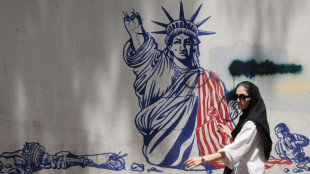
-
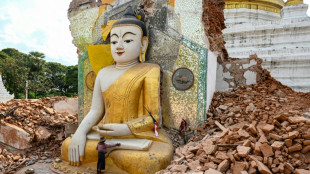 March quake to drive 2.5% drop in Myanmar GDP, says World Bank
March quake to drive 2.5% drop in Myanmar GDP, says World Bank
-
London-bound plane crashes in India with 242 on board
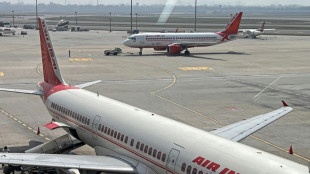
-
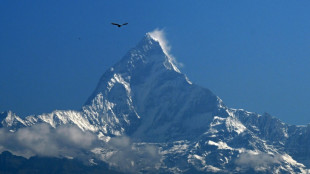 Disasters loom over South Asia with forecast of a hotter, wetter monsoon
Disasters loom over South Asia with forecast of a hotter, wetter monsoon
-
Chinese woman detained over BTS Jungkook attempted break-in

-
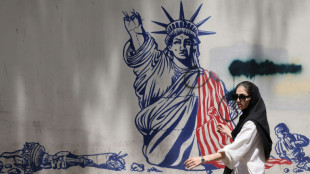 Oman to host US-Iran nuclear talks on Sunday
Oman to host US-Iran nuclear talks on Sunday
-
UK economy shrinks in April as US tariffs kick in
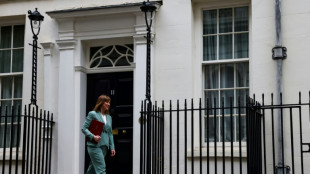
-
 Poland coach quits after Lewandowski boycott and World Cup qualifier loss
Poland coach quits after Lewandowski boycott and World Cup qualifier loss
-
Israel says Hamas 'weaponising suffering in Gaza' as aid workers killed
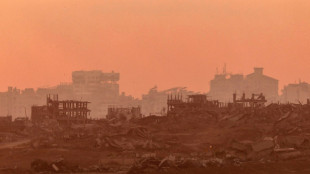
-
 Jones tells Japan to run wounded Wales 'off their feet' in the heat
Jones tells Japan to run wounded Wales 'off their feet' in the heat
-
Shares stumble after Trump's latest trade threat
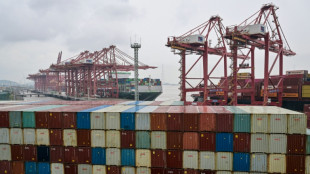
-
 Japan, China trade barbs over fighter jet manoeuvres
Japan, China trade barbs over fighter jet manoeuvres
-
122 million forcibly displaced worldwide 'untenably high': UN

-
 Niger-Benin border standoff deepens as trade collapse bites
Niger-Benin border standoff deepens as trade collapse bites
-
Ethiopia's vast lake being pumped dry

-
 EU crypto regulation hampered by national flaws
EU crypto regulation hampered by national flaws
-
Nairobi startup's bid to be 'operating system for global South'

-
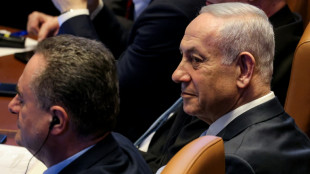 Netanyahu survives opposition bid to dissolve parliament
Netanyahu survives opposition bid to dissolve parliament
-
US-backed Gaza Humanitarian Foundation says 5 members killed in Hamas attack
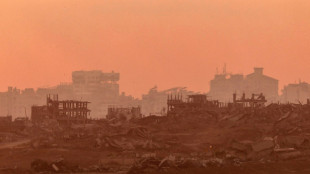
-
 Resilient Mathurin stars in Pacers win
Resilient Mathurin stars in Pacers win
-
Scheffler chases back-to-back majors at US Open


Rare earths: China's trump card in trade war with US
China is counting on one crucial advantage as it seeks to grind out a deal to ease its high-stakes trade war with the United States -- dominance in rare earths.
Used in electric vehicles, hard drives, wind turbines and missiles, rare earth elements are essential to the modern economy and national defence.
AFP takes a look at how rare earths have become a key sticking point in talks between the US and China.
- Mining boom -
"The Middle East has oil. China has rare earths," Deng Xiaoping, the late Chinese leader whose pro-market reforms set the country on its path to becoming an economic powerhouse, said in 1992.
Since then, Beijing's heavy investment in state-owned mining firms and lax environmental regulations compared to other industry players have turned China into the world's top supplier.
The country now accounts for 92 percent of global refined output, according to the International Energy Agency.
But the flow of rare earths from China to manufacturers around the world has slowed after Beijing in early April began requiring domestic exporters to apply for a licence -- widely seen as a response to US tariffs.
Under the new requirements -- which industry groups have said are complex and slow-moving -- seven key elements and related magnets require Beijing's approval to be shipped to foreign buyers.
- Deep impact -
Ensuring access to the vital elements has become a top priority for US officials in talks with Chinese counterparts, with the two sides meeting this week in London.
"The rare earth issue has clearly... overpowered the other parts of the trade negotiations because of stoppages at plants in the United States," said Paul Triolo, a technology expert at the Asia Society Policy Institute's Center for China Analysis, in an online seminar on Monday.
That disruption, which forced US car giant Ford to temporarily halt production of its Explorer SUV, "really got the attention of the White House", said Triolo.
Officials from the two countries said Tuesday that they had agreed on a "framework" for moving forward on trade -- with US Commerce Secretary Howard Lutnick expressing optimism that concerns over access to rare earths "will be resolved" eventually.
- Rare earth advantage -
The slowing of licence issuance has raised fears that more automakers will be forced to halt production while they await shipments.
China's commerce ministry said over the weekend that as a "responsible major country" it had approved a certain number of export applications, adding that it was willing to strengthen related dialogue with "relevant countries".
But that bottleneck has highlighted Washington's reliance on Chinese rare earths for producing its defence equipment even as trade and geopolitical tensions deepen.
An F-35 fighter jet contains over 900 pounds (more than 400 kilograms) of rare earth elements, noted a recent analysis by Gracelin Baskaran and Meredith Schwartz of the Critical Minerals Security Program at the Center for Strategic and International Studies.
"Developing mining and processing capabilities requires a long-term effort, meaning the United States will be on the back foot for the foreseeable future," they wrote.
- Playing catch up -
The recent export control measures are not the first time China has leveraged its dominance of rare earths supply chains.
After a 2010 maritime collision between a Chinese trawler and Japanese coast guard boats in disputed waters, Beijing briefly halted shipments of its rare earths to Tokyo.
The episode spurred Japan to invest in alternative sources and improve stockpiling of the vital elements -- with limited success.
That is "a good illustration of the difficulty of actually reducing dependence on China", said Triolo, noting that in the 15 years since the incident, Japan has achieved only "marginal gains".
The Pentagon is trying to catch up, with its "mine-to-magnet" strategy aiming to ensure an all-domestic supply chain for the key components by 2027.
The challenge facing Washington to compete with Beijing in rare earths is compounded by sheer luck: China sits on the world's largest reserves.
"Mineable concentrations are less common than for most other mineral commodities, making extraction more costly," wrote Rico Luman and Ewa Manthey of ING in an analysis published Tuesday.
"It is this complex and costly extraction and processing that make rare earths strategically significant," they wrote.
"This gives China a strong negotiating position."
T.Ward--AMWN
